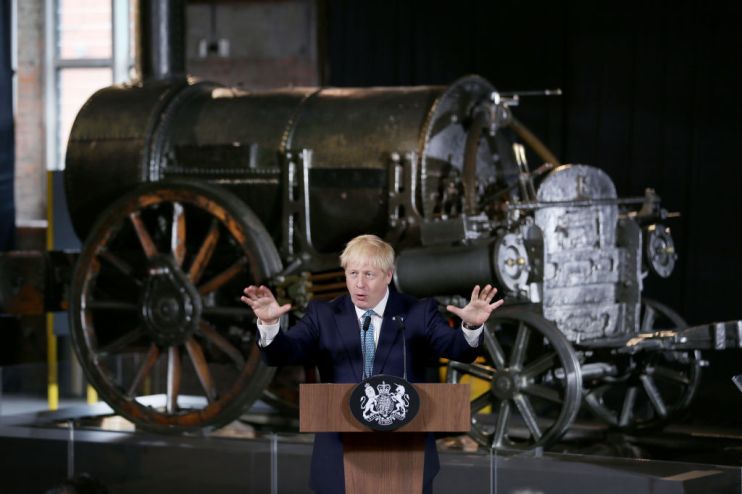Why Boris Johnson could be the man to unlock the potential of the Northern Powerhouse

If I asked you to think of a politician who could rebalance the economy and reinvigorate the north, Boris Johnson probably isn’t the first who springs to mind.
With his Eton schooling and eight-year tenure as mayor of London, Boris is very much the stereotypical southern Englishman.
You’re much more likely to conjure up Andy Burnham, a man so desperate to remind people that he is northern that, when asked his favourite biscuit, he replied that he preferred beer, chips and gravy.
But could the new Prime Minister be the one to finally make a success of the Northern Powerhouse?
Five years after its inception, this industrial initiative is still struggling to get out of first gear. Yes, it has a jazzy website and its own minister, but when you look at the detail it’s hard to see what all the talking up towns and cities above the M62 has actually achieved.
Manchester has its own mayor, as does the Sheffield City Region, but the devolution settlement for Yorkshire is crumbling as the various local authorities fight over who and what should be included.
HS2 – ostensibly a project designed to connect the north – is running at almost twice its predicted £36bn budget, and as I head back to Scunthorpe for the weekend to visit my family, I’m likely to find myself on a Northern Rail pacer train, on a non-electrified line, the mere sight of which would make most Londoners shudder (think the Bakerloo Line with less cushioned seating).
Some argue that the Northern Powerhouse lacks investment – by which they mean taxpayers’ money – while others say that the scheme is too broad and vague to have significant impact. But the new Prime Minister seems to think otherwise.
Boris headed to Manchester on only his third day in the job to give a speech which praised the “countless tales of Mancunian pioneers”, but also reflected on the towns and cities not too far away which continue to suffer from endemic health problems, generational unemployment, and down-at-heel high streets.
These are places where young people grow up in hopelessness, or with hope that one day they’ll get out and never come back. And Boris has set out his stall on how he can help.
With a four-pronged strategy for improving “all the places we call home”, Boris built on his campaign promises during the Conservative leadership contest and set out plans to improve the safety, connectivity, culture, and accountability of Britain’s towns and cities with plans for better railways, more police officers, a complete review of housing, and fibre broadband roll-out.
This came a day after his trade secretary Liz Truss joined forces with two rare creatures – Conservatives from the north-east – Simon Clarke MP and Tees Valley mayor Ben Houchen, to launch a programme of freeports across the UK.
Freeports will help send investment and jobs flooding into some of the most deprived areas, many of which are in parts of the north often left out of the Northern Powerhouse rhetoric, like Grimsby and the Tyne.
It might all come to nothing – previous Prime Ministers and chancellors have made similar speeches. But with Boris’ charisma, electoral appeal which extends beyond the home counties, and apparent desire to lovebomb traditional Labour voters, there are perhaps more reasons to be optimistic than disaffected non-Londoners might think.
Main image credit: Getty
